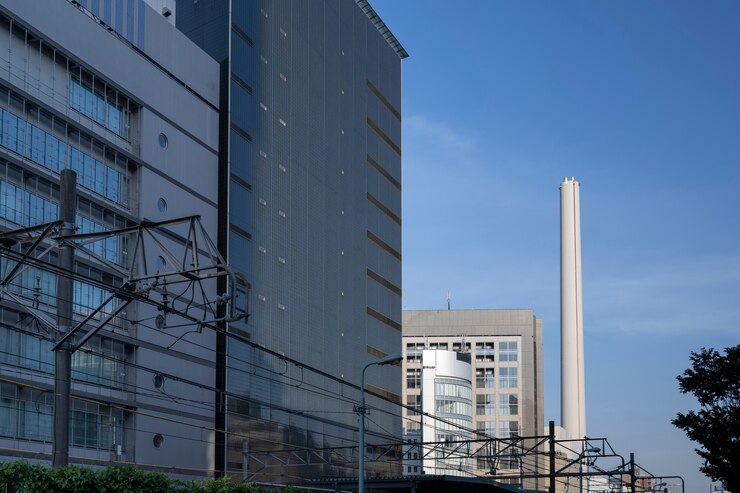
Envision a reality where the thunderous sound of jet engines and the gentle hum of navigation systems abruptly come to a halt. Quite unsettling, wouldn’t you agree? Uninterrupted and eco-friendly power is crucial for ensuring flight operations are secure and efficient. However, despite advancements made in the aviation industry, obstacles continue to exist.
In this dynamically evolving international landscape, effectively meeting the power requirements of aviation necessitates ingenious and versatile remedies. This manual delves into the obstacles encountered by the aviation sector and examines strategies for developing rugged power unit solutions.
Identifying Global Power Challenges
The aviation industry faces numerous power-related difficulties, with unequal availability of dependable power being a significant issue. Although larger airports possess strong infrastructure, smaller airfields, and remote areas frequently suffer from unreliable power sources, negatively affecting critical operations.
In addition, climate change presents notable hazards. Extreme weather occurrences, such as storms and floods, have the potential to disrupt traditional power networks, placing critical airport facilities at risk and potentially leading to flight cancellations. Moreover, the increasing requirement for air transportation resulting from population growth and economic progress amplifies the burden on current power infrastructure.
Developing Adaptive Power Units
To surmount these challenges, it is necessary to employ versatile and resilient ground power units that are specifically engineered to function effectively in diverse settings, endure impacts and disturbances, and seamlessly incorporate renewable energy sources.
An encouraging strategy involves the advancement of modular power units. These self-contained systems possess the capacity for expansion, rendering them appropriate for use at expansive airports as well as isolated airstrips.
Furthermore, microgrids can produce and distribute electricity within a localized area, thereby enhancing overall resilience by supplying alternate power sources during periods of service interruption.
Technological Innovations in Power Generation
To establish a robust aviation power system, the presence of innovation is indispensable. Embracing sustainable energy sources, such as solar power, wind energy, and geothermal energy, offers a feasible and environmentally conscious substitute for conventional fossil fuels.
Resistant aircraft ground power units, such as advanced battery storage systems, are increasingly gaining momentum, enabling the utilization of renewable energy even in areas with restricted access to sunlight or wind resources.
Overcoming Energy Accessibility Challenges
To guarantee the accessibility of these technological progressions, particularly in isolated regions, it is necessary to tackle various obstacles. Overcoming financial barriers proves to be challenging since the implementation of new power solutions typically demands substantial investment.
On top of that, the transfer of knowledge and the development of skills are of paramount importance in enabling local communities to effectively operate and maintain these systems.
Resilience in the Face of Climate Change
As the risk of climate change escalates, establishing power systems capable of enduring severe weather phenomena becomes crucial. This entails fortifying and broadening power networks and adopting decentralized alternatives that are less vulnerable to widespread disruptions.
Equally crucial is the investment in climate-resilient infrastructure, which involves implementing measures to protect power plants and substations from potential flooding.
Building Global Partnerships for Power Resilience
Addressing the global power challenges in aviation requires a concerted endeavor. Countries, international entities, and the aviation sector must come together to exchange expertise, pool resources, and generate inventive remedies.
The collaboration between the public and private sectors, as well as global initiatives centered on the transfer of technology, can greatly contribute to this undertaking.
Cybersecurity Challenges in Power Units
With the growing integration and dependency on technology in aviation power systems, there is a rise in cybersecurity issues. The potential for malicious individuals to disrupt crucial operations through cyberattacks poses a threat to aviation safety and the welfare of the public.
It is crucial to incorporate strong cybersecurity measures, such as the encryption of data and the division of networks into segments, to effectively minimize these risks.
Regulatory Frameworks for Resilient Power Solutions
Creating a favorable regulatory atmosphere is pivotal in promoting investment in resilient aircraft ground power unit solutions. This necessitates the implementation of clearly defined rules and regulations about the generation and storage of renewable energy at airports, simplifying authorization procedures for the establishment of new power infrastructure, and potentially providing incentives to encourage the adoption of sustainable methods.
Moreover, regulations that encourage energy efficiency can have a substantial impact on lessening overall energy consumption and nurturing a more environmentally friendly power grid within the aviation sector.
To Sup Up…
To summarize, the establishment of a durable and eco-friendly power infrastructure for worldwide aviation necessitates a multifaceted strategy. This entails the enhancement of flexible power units, cultivating technological progress, and forging international partnerships to navigate the ever-changing power dynamics in the aviation sector.
By acknowledging and tackling issues related to accessibility, bolstering climate adaptability, and placing a strong emphasis on cybersecurity, we can secure a more promising future for inclusive, streamlined, and environmentally friendly aviation.
